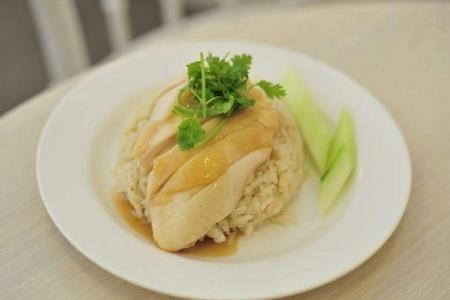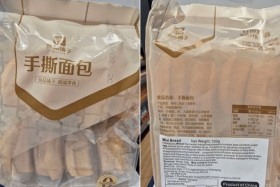No recent food-borne illness cases involving chicken rice in Singapore
While enforcement action has been taken against 22 chicken rice stalls by the Singapore Food Agency (SFA) since 2020, there have been no reported food-borne illness cases involving chicken rice since then.
The agency released the statement on Friday in the wake of a video by YouTuber Angel Hsu, which claimed that in a self-conducted test of 100 chicken rice stalls around Singapore, nearly half of samples tested in a lab were found to have exceeded regulatory limits for E. coli bacteria.
The YouTuber, who is originally from Taiwan and posted the video on June 3, said she conducted the test over two months in a bid to find the best steamed chicken rice in Singapore.
It included a component where, for each stall she visited, she bought an additional packet that was sealed and transported in an ice box to a lab for testing.
Results and data she shared showed that 45 stalls had E. coli bacteria exceeding SFA’s limit of 100 cfu/g, or colony-forming units per gram. Four stalls out of the 100 had a reading of more than 490,000 cfu/g.
SFA said in its statement that chicken rice, which is considered a food item with higher risks, “is subjected to more stringent and frequent checks”.
The agency noted that a common preparation method for chicken rice here involves gently boiling the chicken in stock, and quickly quenching the cooked chicken in iced or tap water after, which can lead to it being undercooked. This is where bacteria can continue to survive.
Additionally, after cooking, the chickens are also often displayed at room temperature over an extended period, which also allows bacteria to grow.
“When chickens are sliced to serve, cross-contamination could occur from handling meat or through the chopping boards and other surfaces,” said SFA.
The agency said it received a total of 126 instances of feedback on chicken rice stalls from 2020 to May 2023, of which it took enforcement against one for selling unsafe food.
It also took action against 22 other chicken rice stalls found to have failed their standards under SFA’s Market Monitoring Programme, which involves collecting samples and testing for microbiological contamination to ensure food safety requirements are met.
SFA said that while most strains of E. coli do not cause illnesses, it is commonly used as an indicator for food safety, as high levels of E. coli are linked to poor hygiene, cross-contamination, poor storage practices and insufficient cooking.
It added that fewer chicken rice stalls are failing the microbiological tests under the Market Monitoring Programme.
“SFA will continue to engage and remind the chicken rice stallholders on good food safety practices and monitor these stalls to ensure that food safety requirements are met,” said the agency.
In Ms Hsu’s video, which has garnered over 187,000 views, the YouTuber explains that the criteria for the chosen stalls were based on Google reviews.
They had to have at least more than 10 reviews, and for brands with multiple outlets, she chose the one with the highest rating.
She also told news outlets that she worked over 10 years in a laboratory studying microbiology and infectious diseases, and ended up spending over $5,000 on the project, of which the bulk went to the lab-testing expenses.
In an advisory, SFA said food operators should sell cooked chicken meat within four hours of preparation, and manage the number of prepared chickens according to sales volume so that food items do not end up being displayed for prolonged periods.
The ice or water bath used to chill the cooked chicken should also be replaced frequently, and there should also be proper segregation between cooked and raw meat to prevent cross-contamination.
In addition, all utensils, cutting boards, cleaning cloths and surfaces used during food preparation should be cleaned and sanitised regularly.
Those handling food should wash their hands thoroughly after touching raw food, and use gloves when handling ready-to-eat food.
Get The New Paper on your phone with the free TNP app. Download from the Apple App Store or Google Play Store now


